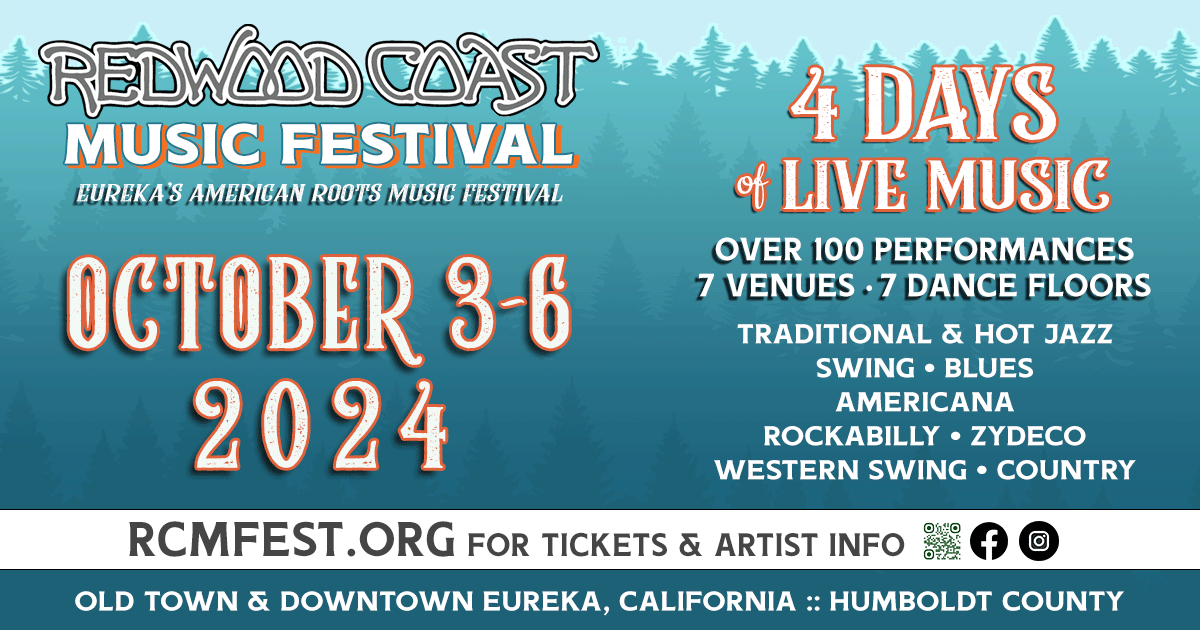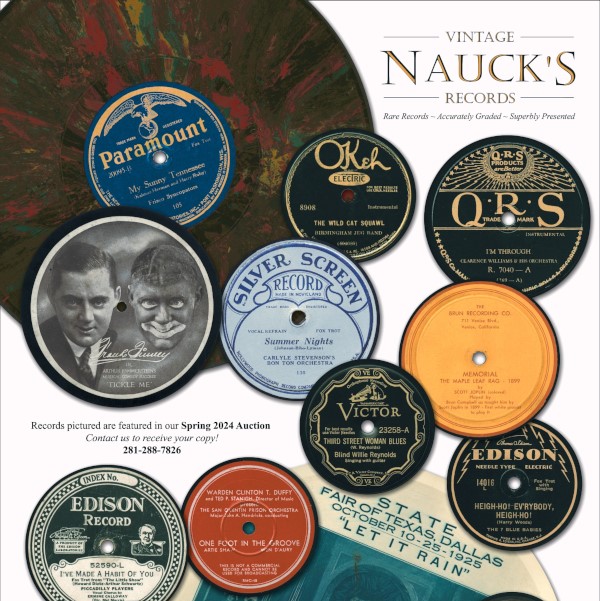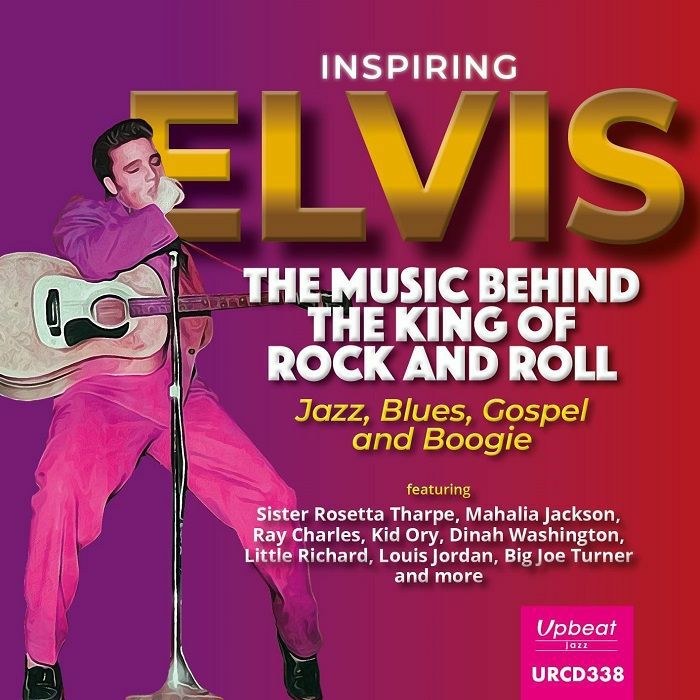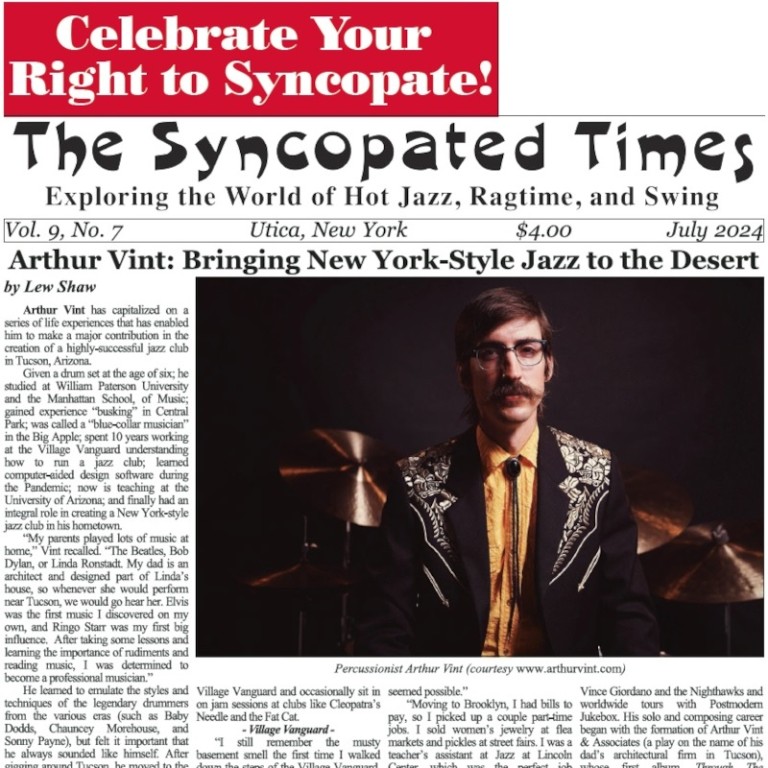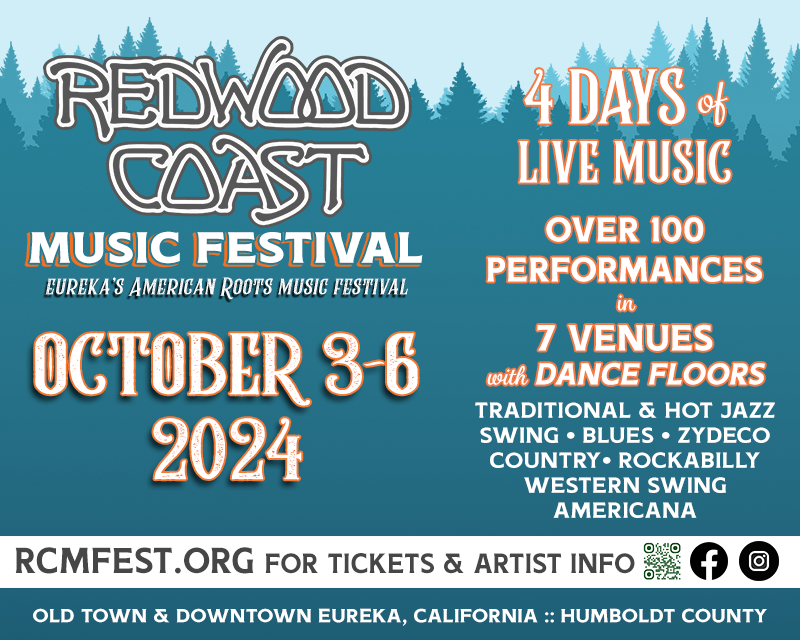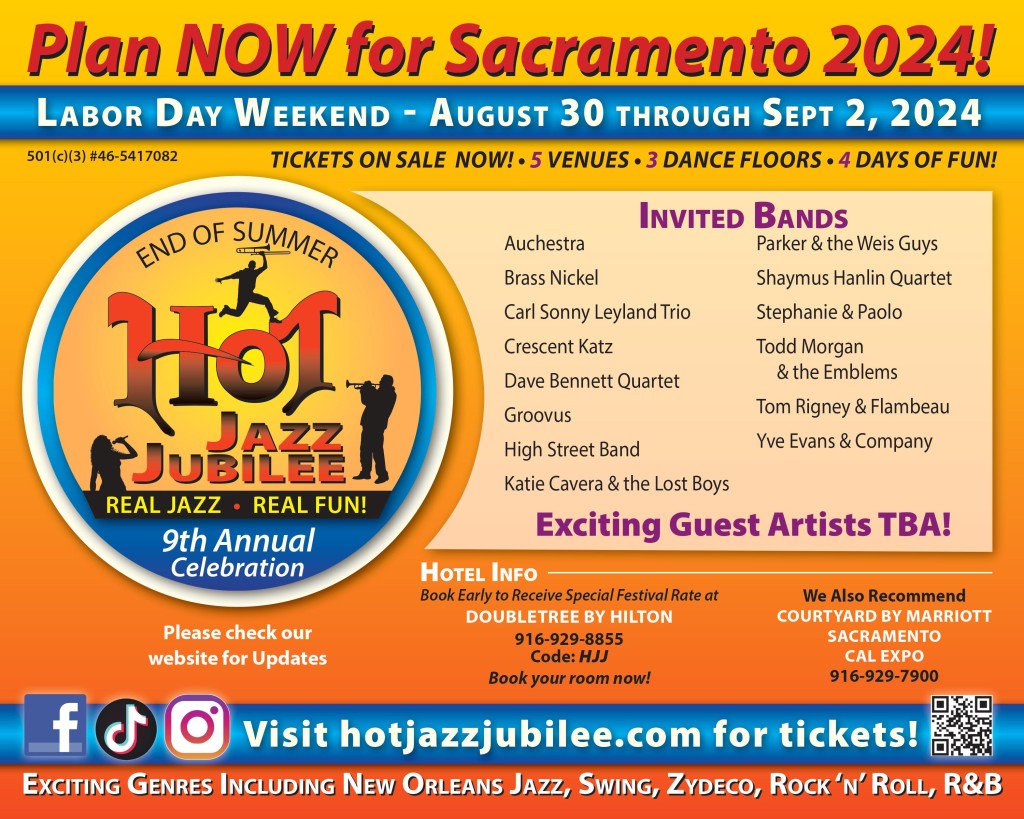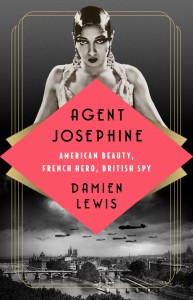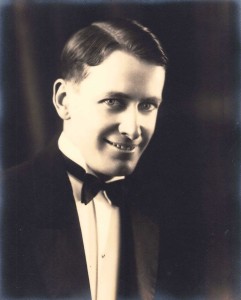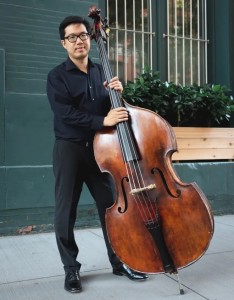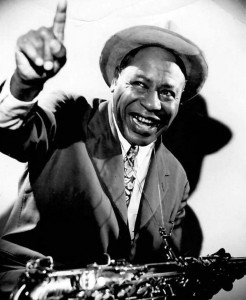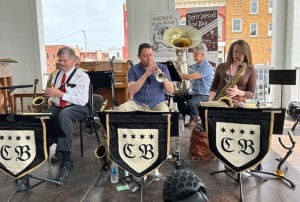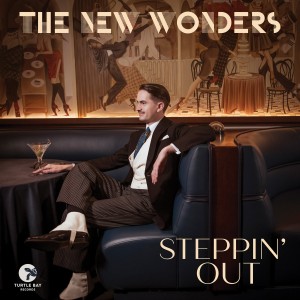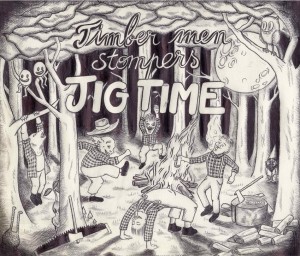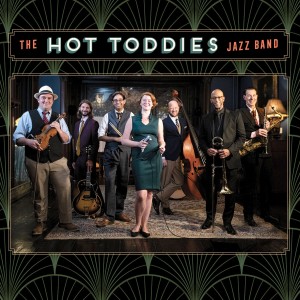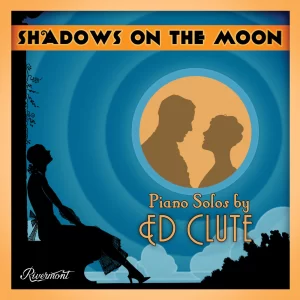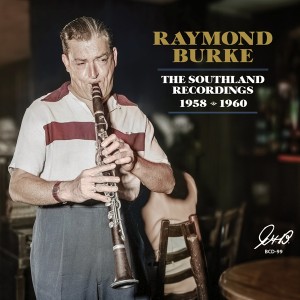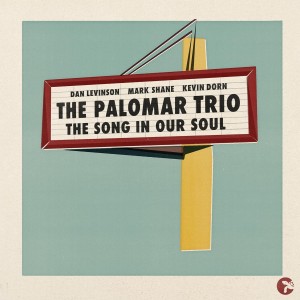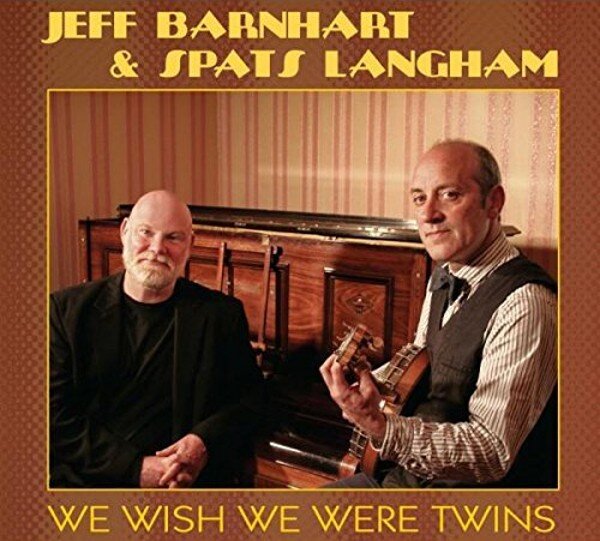 There are some albums which are done a terrible disservice by either not getting the press nor the reviews they deserve. Such is the case with this album, and it is absolutely scandalous.
There are some albums which are done a terrible disservice by either not getting the press nor the reviews they deserve. Such is the case with this album, and it is absolutely scandalous.
I’ll explain why. Compact discs featuring mostly pre-1930 songs are ten a penny since the invention of the compact disc. In my opinion, some are bad compilations of original recordings in such bad shape that you can’t hear the music, or noise management so extreme that almost all the highest frequencies are inaudible. Others are bad compilations by recent bands or instrumentalists trying to self-consciously “re-create” the sounds of the era—and they sound tired and uninspired. Like they reluctantly put it together as part of a school assignment for a bored and disinterested teacher who couldn’t have cared less.
Hearing a recording of this sort of material, which is not just well-done, but expertly and powerfully played, and with extremely thoughtful programming, is a rarity, in my opinion. I know Jeff quite well, and that he’s recorded how many CDs over the years…approximately 150? (I suspect that even Jeff doesn’t know the exact number). Of those, I’ve probably only heard maybe 15 or 20. But I always knew that Jeff was so talented that one day he would create an album which was not just good, not just excellent, but was a classic. This album is Jeff’s mantlepiece. I mean…his masterpiece.
I don’t know Spats at all. But I can figure out quite a bit from the paltry information about him online, his friendly and knowledgeable liner notes, and from his expert music-making. And like Jeff, he is not just a virtuosic and knowledgeable player of this style of music; he is in possession of excellent historical and stylistic knowledge, and both he and Jeff put it to miraculous effect in this extraordinarily diverse, and musically sophisticated album.
The potential listener is presented with a fairly non-descript photo of Jeff & Spats on the album cover. All we know from this is that it’s merely two guys who got together with a piano and banjo. But there is nothing “mere” about this release.
It would have been so easy to fill up an album of well-known ditties like, “Five Foot Two, Eyes of Blue,” or “I’ll See You in My Dreams.” But Jeff and Spats, clearly being inventive, discerning, and intellectually adventurous musicians tasked themselves with the creation of something quite unique: namely, to fill an album with (mostly) obscure songs from (mostly) the 1920s or before, and to imbue each one with an extraordinarily distinctive personality, different from all the others. No small order.
I am now going to wax rhapsodic over a few of the tracks (how’s that for an out-of-date 1920s phrase?). I would be hard-pressed to call any of them my “favourites” because all but one are my favourites. But they are the ones which stand out the most in mind after listening to the whole CD multiple times.
Regarding both obscurity and distinctive renditions, Jeff and Spats’ delightful version of “Sleepy Head” (written by Ikey Robinson), is a case in point. This starts off in a very jaunty unaffected fashion, with Spats just doing basic rhythm work to accompany Jeff’s singing. Towards the middle, Jeff “talks” a chorus of the song. This is both reminiscent of, and pays tribute to, both the bandleader Ted Lewis and the style of “talk-singing” which one might have heard in vaudeville performances in the 1910s and 1920s (or in British “Music Hall” performances of roughly the same era). It is done while there is a delightful, quiet banjo tremolo underneath. This gives huge variety to the performance. Then, in the final chorus, Jeff’s voice does a “multi-registral” rendition of the song where his voice jumps all over the place, including into a high falsetto vocal register after the word, “howl.” If we found this technique in a song by the classical composer Franz Schubert, we would call this, “word painting.”
Songs don’t get much more obscure than the 1927 tune, “Baltimore” by Irving Kahal/Danny Healy (words), and Jimmy McHugh (music). It was so little-known that apparently even Jeff didn’t know it before Spats introduced it to him. I only knew about it because of pure serendipity: I found a copy of a 78 rpm record of it when I was growing up in New Zealand, as played by Fred Rich and his Orchestra. I always thought that Fred Rich’s version was the only one which had the necessary “pep” to bring it off. But Jeff’s and Spat’s version of it, which is considerably slower than that of Fred Rich, proves me completely wrong. Spats and Jeff’s rendition is still high-powered and filled with passion, and Jeff’s improvisations are truly remarkable, especially considering the recording studio is where he first played it. And to round things off, it is ended quietly. This is what we in the music profession call, “subtle,” and it is always preferable to its opposite.
When Jeff and Spats occasionally choose a tune which someone other than they actually know about, they still perform it inventively. Take for example, the “Fats” Waller/Andy Razaf song, “Say It with Your Feet,” and the Milton Ager/Jack Yellen classic, “Happy Feet.” Instead of playing them separately, as most performers might do, they combine them to make a little dance-themed medley. How clever! Not only clever on the surface, but musically inventive, as on the final chorus of “Happy Feet,” they both sing a little “call and response” pattern in harmony together. Spats also does a great little banjo solo that is worthy of Harry Reser.
The thoughtful programming also extends to the names of the songs; for instance, “Travelin’ All Alone” is immediately followed by “All Alone.” In “Travelin’ All Alone,” after the first chorus, you hear Jeff doing some Jelly Roll Morton style double-timing in the right hand followed by a virtuosic solo by Spats on the banjo while Jeff does a not-so-simple obbligato in the bass region of the piano. This is then complimented by a “call and response” pattern between Jeff’s piano improvisations in the right hand and Spats’ singing. I think this is ingenious.
Not only is the programming thoughtful, but so is the arranging. For example, “Blue Evening” starts as a guitar solo, then Spats starts singing in a 1920s crooning style complete with gentle glissandi up to the high notes. This is accompanied by simple tenths and thirds played in the bass region of the piano by Jeff, which he then follows with an improvisation in the melody played by the right hand.
Another example of the diverse range of styles can be heard in “Rose of Washington Square.” It starts with a simple banjo solo. Jeff then sings very quietly over the top of muted banjo sounds, probably played on a region of the banjo where one can get a softer sound. This is, once again, redolent of Music Hall or Vaudeville singing. At this point, the two vocalists blend their vocal sounds so well that you barely notice when Spats takes over the vocal from Jeff. Then Spats takes on the Music Hall style of singing over a quiet piano accompaniment. So they are going back and forth with one singing, the other accompanying, only on different instruments, obviously. I think this is tremendously clever. Around the mid-point of the song, when Jeff takes back the vocal again, the tempo picks up. For the second to last chorus, it turns into a quick-step ragtime style of accompaniment and the vocal style changes appropriately. You don’t just have three different speeds in the song, you have three different types of instrumental accompaniment and singing styles—all within the same song! The final chorus consists of Jeff improvising the melody while singing after which both vocalists sing in harmony for the finale.
The next song, “Isn’t Love the Strangest Thing?” is taken at a much slower tempo, and in a contrasting style, with the guitar instead of banjo just strumming the chords while Jeff plays up and down with a simple improvised melody. Spats returns to the 1920s crooning style again. The middle chorus is a lovely improvisation by Jeff in the midsection of the piano while Spats just gently strums with some chords.
When I first heard “With My Love,” I thought for sure that it must be an obscure song by Cole Porter which I had never heard before because the lyrics were just so clever. So imagine my surprise when I found out that Jeff wrote it! It both sounds like a 1920s tune, but at the same time, completely modern. Jeff’s first chorus is followed by an improvised chorus on solo guitar by Spats, a solo worthy of Eddie Lang. Both the song, the vocal, and the arrangement are quite remarkable.
The last song on this album I’d like to discuss is “How Deep Is the Ocean?” It is the second to last and is a beautiful ballad (don’t worry, the guys end the album with a fast-paced version of the titular crowd pleaser, “I Wish I Were Twins”). “Ocean” is worth mentioning because it starts off like ballad with no discernable sense of time. That quickly changes to slow guitar chords with Spats’ vocal being sung as a “call and response” with Jeff’s improvisations in the upper range of the piano. Jeff manages to accentuate the beautiful chord progressions with a sort of Chopinesque improvisation over the harmonies. Spats shows great control of his voice on this track, bending the notes both up and down in a vocally virtuosic manner. It then ends both quietly and subtly.
While I may not have recorded 150 albums, I have listened to this one pretty close to that number, and in my opinion, there is only one track that doesn’t stand up to 150 hearings. (It is a jug-band-type arrangement, and is, nonetheless, still great fun to listen to).
Here are two exceptional and experienced musicians who play passionately, with heart, great virtuosity, and profound historical knowledge. Their arrangements are inflected with a deep understanding of historical context, which is clearly audible during every moment of the recording to those who follow this genre of music. Almost every song is a jewel, sung with both power and gusto. And most certainly, every performance is absolutely remarkable as both an arrangement and a performance.
Once in a blue moon, the studio gods gaze down from Mount Olympus and smile upon a new (or newer) recording. All the planets and stars align, inspiration flows, and the music world is blessed with something both unique and beautiful. This album is one of those very, very rare occurrences.
[Please Note: There is a follow-up to this release entitled Thanks for the Melody (also released by LAKE CDs, LACD 355), which will be discussed at a future date, TBD.]
We Wish We Were Twins
Jeff Barnhart, piano & Spats Langham, banjo/guitar,
Lake LACD342 (released 2015)




